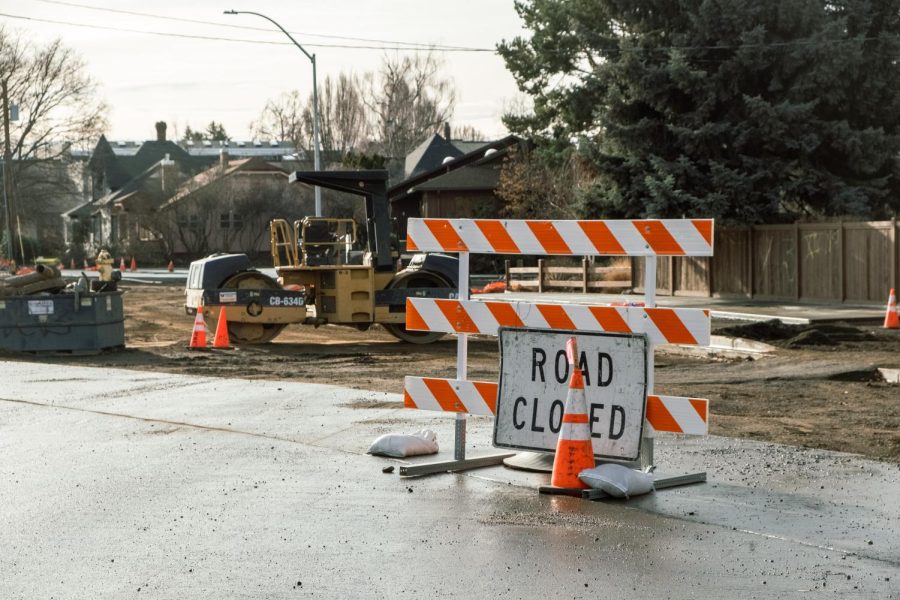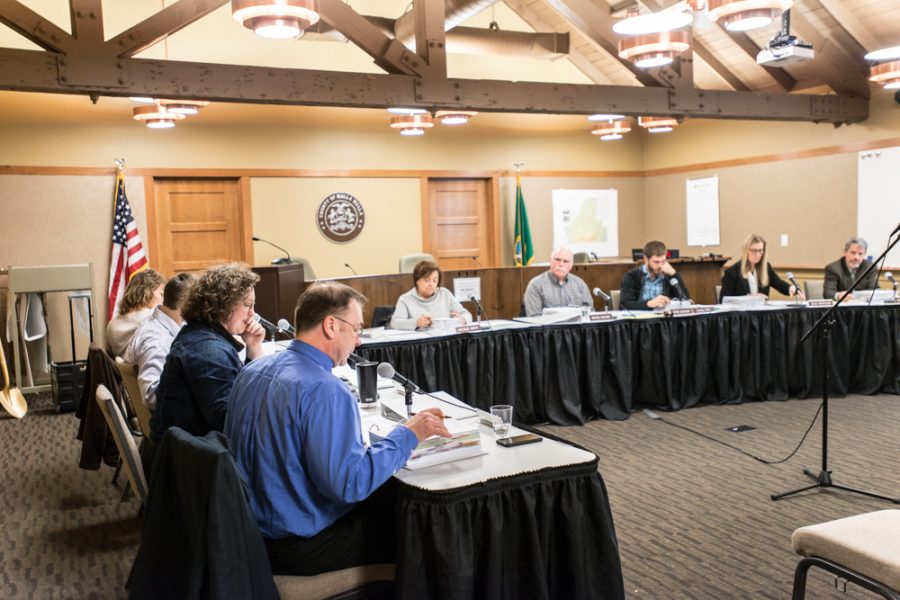Shell’s Arctic fleet is moving north to the Port of Seattle, and a coalition of environmental groups, including a group of students from Whitman, is planning to protest in a flotilla of kayaks on May 16.
Whitman activists will join other environmentalists from the sHELL NO coalition to demonstrate against the Arctic fleet, which will be harboring in the Port of Seattle during the winter after port commissioners struck a controversial and somewhat secretive deal with the Shell Oil Company this winter.

Although elected port commissioners knew about the proposed alliance with Shell as early as summer 2014, they kept quiet until Jan. 7. When one commissioner raised a motion for further debate on the issue at a public meeting on Jan. 13, nobody seconded, and within less than a week of becoming public, the deal was effectively closed.
However, on May 4 an investigation by the Seattle Department of Planning and Development found that the lease allowing Shell in the port is in violation of a 20-year-old shoreline permit issued by the city which designates the fleet’s destination in Terminal 5 as a “cargo terminal.” The investigation occurred in response to a lawsuit filed by Earthjustice on behalf of a group of environmental organizations. The port can now either reapply for a new permit or challenge the city’s decision in court. For now, Shell’s fleet continues to chug northwards.
Many environmentalists and Seattle residents are outraged at the port’s quick and private decision making. The decision establishes the port in support of controversial Arctic drilling, which has serious implications for environmental damage to the Arctic and for global warming.
Senior Emily Ford and sophomore Fiona Bennitt are organizing a group of Whitman students to join the “sHeLLNO coalition in a kayak demonstration on May 16.
Both geology majors, Ford and Bennitt are highly aware of climate change. They are particularly interested in environmental advocacy regarding water issues. Both are members of the student group Rethink Dams, which is advocating for the removal of the lowest four dams on the Snake River.
Organizing for the Shell protest has been tough because Ford and Bennitt are not working through an official Whitman club.
Ford and Bennitt, however, have funding from the Outdoor Environmental Leadership Fund, which supports “special projects” related to environmental studies. So far there are only nineteen students signed up. Ford and Bennitt hope to find one more students before the weekend of May 9, when they will lead a meeting to brief participants on the issue and on basic kayak safety procedures.
Kayaking amidst the oil rigs involves serious safety hazards. At a speed of 11 knots (12.7 MPH), it takes a 650-foot-long ship over a mile to pull the emergency break over the course of eight minutes.
Protesters are safer in the “First Amendment Zone,” an informal area just north of Terminal 5. The Coast Guard designated the zone as a space for protesters to visibly express themselves without the dangers of paddling among marine traffic. Although Ford supports those who will venture into the more dangerous space around Shell’s vessels to engage in civil disobedience, she says that Whitman students won’t stray from the First Amendment Zone.
Even there, though, protesters are not free from risk. The Coast Guard warned that if a kayak flips, the sudden entry into frigid water could result in cardiac arrest, even for those in good health.
The Whitman protesters plan on renting gear from the Outdoor Program. Stuart Chapin, the assistant director of Outdoor Programs, said that although gear has been used in the past for “activist kind of things,” like an educational trip though the locks on the Lower Snake River, he is unaware of its previous use in a direct protest.
“We rent the gear under the understanding that we’re not running the trip. I’m not familiar with what risks there are for this situation,” he said.
Safety aside, one risk for the sHELL NO demonstration may be confusion about what the protesters actually want. Are they advocating an end to Arctic drilling or do they just want Shell out of Seattle?
sHELL NO’s website clearly distinguishes the protest as one against Arctic drilling.
“Drilling for Arctic oil … could … spell disaster for one of the most unique wilderness areas on the planet and all of its inhabitants,” the site states.
Ford described the protest the same way.
“It’s much more focused on no more Arctic drilling,” she said. “It’s very focused on what’s going to happen next.”
But Ford also pointed towards displeasure about Shell’s local presence as a reason for the protest.
“Seattleites are really angry that they weren’t told about this,” she said.
The focus on protesters’ qualms with Shell’s local presence may risk marking the demonstration as a re-articulation of privilege rather than an indictment of Shell.
“There’s an aspect of privilege to this,” said Bennitt. “As highly affluent people compared to the rest of the world, we can afford to protest these things. We can afford to say ‘no drilling on our turf.'”
Ford believes, though, that the protests’ goals are not antithetical and may actually unite for global change.
“If Seattle shows leadership in not allowing this to happen, it will create some changed perspectives and shut down those drilling companies in the future,” she said.















